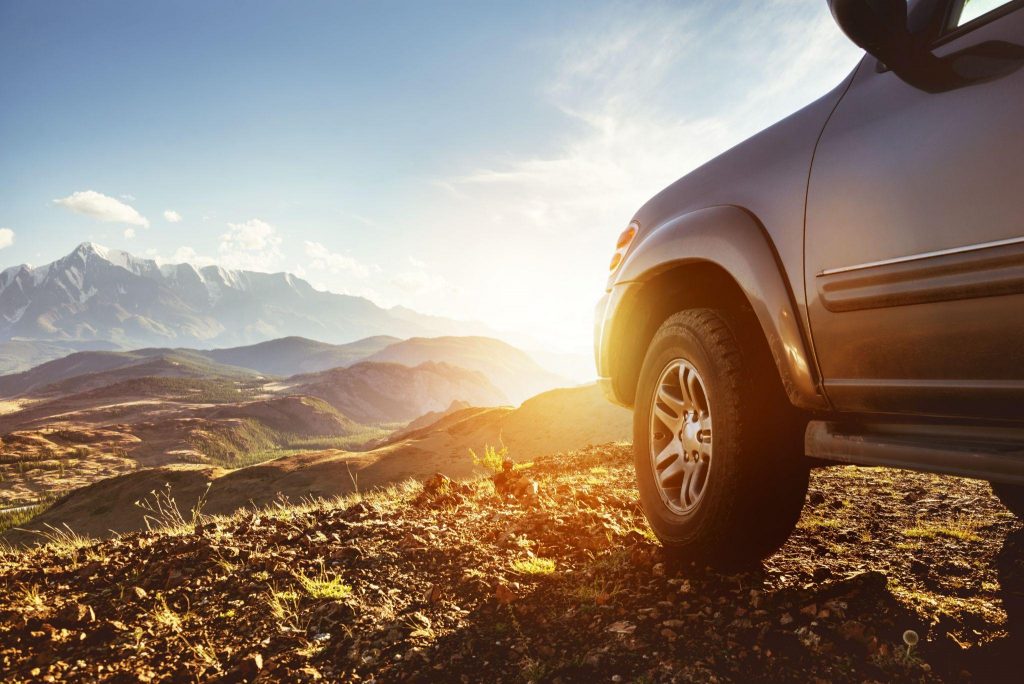It’s something any seasoned road tripper either fears or has experienced. You’ve got the car all packed up, you’re traversing the open road and suddenly the check engine light goes on, or you get a flat. Maybe you’ve got a dead battery and you forgot the portable battery jumper at the house.
Whatever the issue, car troubles are one quick way to derail even the most enjoyable of road trips. However, with some gear and know-how, you can make short work of the main issues that can plague a road trip and make (trouble-free) memories to last a lifetime.
First Things First
Before you even hit the road, it’s always a good idea to give your car a once-over. As long as you’re a little bit handy, you can do this yourself. If you aren’t (or you’re driving an RV or other complex rig), it’s worth the cost to have a professional give your car a look. A little bit of prevention goes a long way!
- Check your tires and tire pressure
- Do a fluids check (oil, brake, washer, etc.) and top off as needed
- Check the AC
- Test your battery
Going through a basic pre-trip checklist is simple and will offer plenty of peace of mind for the long miles ahead.

Pack the Fluids
Yes, pack extra water for the travelers in the car, but we aren’t just talking about that. Having essential fluids can save you from paying inflated prices at service stations or, worse, ending up stranded. Make sure, at a minimum, you have oil (know which type of oil your car takes – they aren’t all the same), coolant and windshield wiper fluid. Transmission, brake and power steering fluids, while not absolutely necessary, can be good to have, too.
Electronics
There are two major pieces of electronics you want on a long road trip: an OBD-II scanner and a car charger. If your car already has charging capabilities, you should consider investing in a phone mount at least. If nothing else, it’ll keep you from fumbling for your phone while driving.
While many people don’t carry OBD (On-Board Diagnostic) scanners, it’s an essential tool you should always have in your car. You don’t have to buy a professional-grade one. In fact, there are plenty of good, affordable scanners that hook up to your phone via Bluetooth. If you get a trouble code on your dash in the middle of nowhere, you want to know what it is immediately. Having an OBD-II scanner allows you to immediately diagnose the severity of your issue and just how far you can drive safely.
As a backup, having a fully charged power bank is ideal. If you plan to be off the grid for any amount of time, consider a bigger portable power station to charge larger devices.

Emergency Kit for the Car
You can buy pre-packed versions of this to simplify things. Just make sure you know how to use everything in there. Generally, you want a kit that has road flares, traffic warning triangles and high-vis vests for when you have to get out of the car. Polarized sunglasses are also handy for reducing glare during daytime driving. While you hope to never break down at night, these pieces will make getting out of the vehicle much safer, especially if you’re on a main road or highway.
Don’t Just Care for the Car
You want emergency kits both literally and metaphorically. Make sure you have a first aid kit that can treat all the basics. While not a literal emergency kit, emergency snacks and water can go a long way. Being hangry is not ideal if you want a trouble-free road trip!
Accident Prevention
Yes, obviously, you want to avoid accidents at all costs. However, sometimes life happens, and there just isn’t anything you can do. You can be the most responsible driver in the world, but not everyone will drive that way. A good dash cam is a must-have on the road.
You don’t want to leave it up to chance or have it be their word against yours when talking to the police after an accident. While you rarely get discounted insurance rates for having dash cams, they can prevent you from being unfairly blamed and having your rates go up after a crash.

The Extras
Beyond all those major players, there are a few basics to keep in your car that can be overlooked easily. Make sure you have cash and paper maps at a minimum. Yes, very old school, but still essential. If you can’t charge your phone for whatever reason, you’ll be glad to have a paper map as a backup. Cash, while rarely necessary, can be a lifesaver if your card is declined or you run into a cash-only toll bridge or parking meter.
Pack Your Knowledge
All the gear in the world won’t help if you don’t know how to use it. The likelihood is that the only issues you’ll run into are dead batteries or flat tires. Make sure that, at a minimum, you can change a tire and jump a dead battery. If nothing else, maybe you’ll be able to use your knowledge to help someone else in need.


